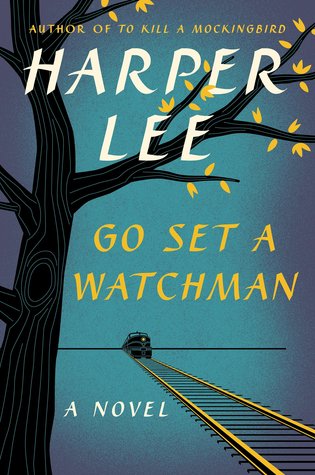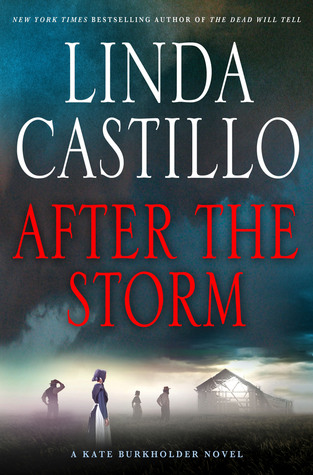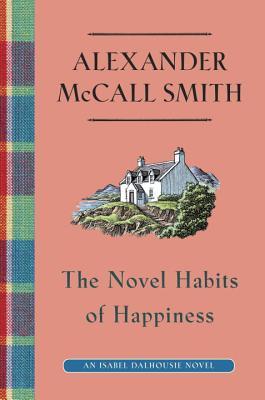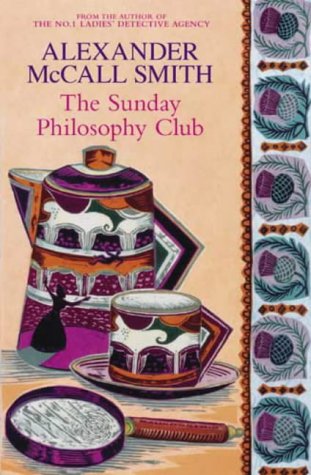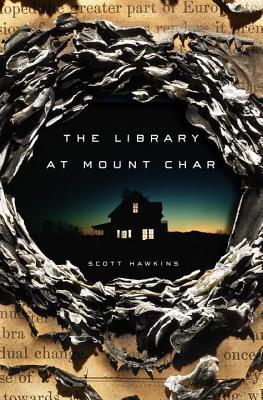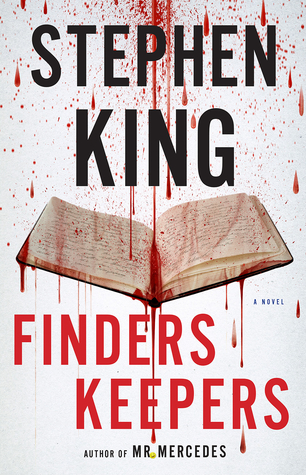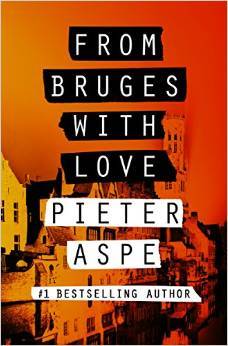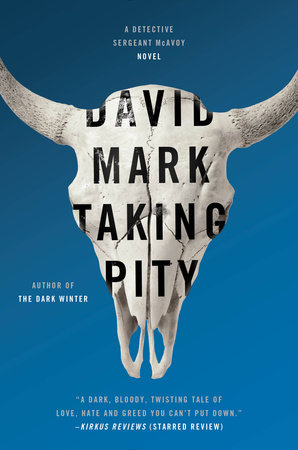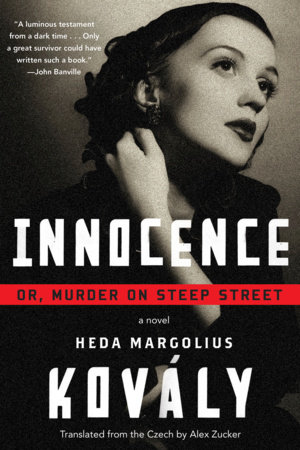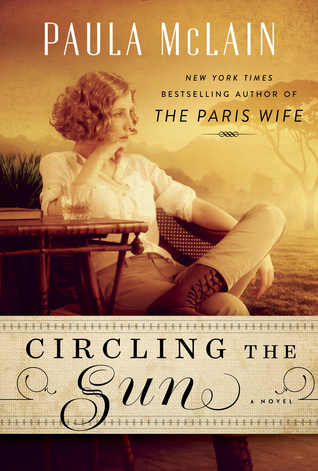 I've always loved riding the train, especially when I'm alone and traveling a route I've driven a gazillion times. With familiar views out the windows and no companion, I read. There's something so luxurious about reading when you have plenty of leg room and you can hear the train rumbling along from Point A to Point B. All you need for a pleasant time is the right book.
I've always loved riding the train, especially when I'm alone and traveling a route I've driven a gazillion times. With familiar views out the windows and no companion, I read. There's something so luxurious about reading when you have plenty of leg room and you can hear the train rumbling along from Point A to Point B. All you need for a pleasant time is the right book.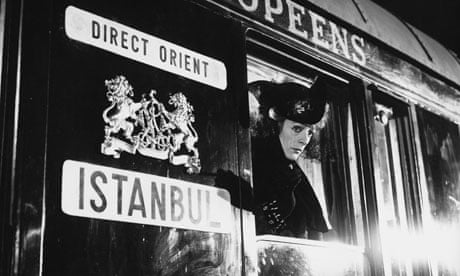 | |
| Maggie Smith as Greene's Aunt Augusta in the 1972 film directed by George Cukor |
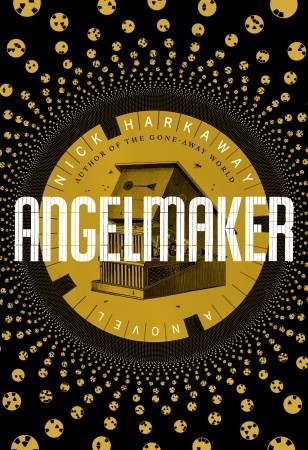 My summer travel plans don't include any of Augusta and Henry's destinations, but I do plan to go to 1884 London via a steampunk novel by Natasha Pulley that combines a mystery with an examination of time, free will, and fate. I'm keeping my fingers crossed that the similarity of its cover to Nick Harkaway's terrific Angelmaker (see Sister Mary Murderous's review here) is a good sign.
My summer travel plans don't include any of Augusta and Henry's destinations, but I do plan to go to 1884 London via a steampunk novel by Natasha Pulley that combines a mystery with an examination of time, free will, and fate. I'm keeping my fingers crossed that the similarity of its cover to Nick Harkaway's terrific Angelmaker (see Sister Mary Murderous's review here) is a good sign.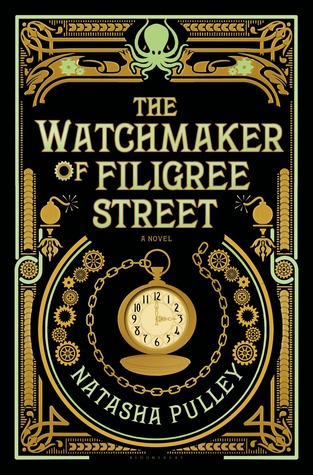 Early reviewers rave about The Watchmaker of Filigree Street (Bloomsbury USA, July 2), which revolves around Keita Mori, a Japanese immigrant who is London's finest and most creative watchmaker. Mori keeps a clockworks octopus for a pet and may be able to "remember" the future.
Early reviewers rave about The Watchmaker of Filigree Street (Bloomsbury USA, July 2), which revolves around Keita Mori, a Japanese immigrant who is London's finest and most creative watchmaker. Mori keeps a clockworks octopus for a pet and may be able to "remember" the future.I think Pulley's soothsayer is Mori, rather than his octopus, but I can't help thinking of Paul, the real-life British octopus who moved to an aquarium in Germany and went 8 for 8 in predicting winners of the 2010 World Cup games by picking a mussel out of two flag-bearing containers in his tank. When Paul died "peacefully of natural causes" several months later, his remains were cremated and placed into a golden urn. Der Spiegel's tender obituary is titled "Death of an Oracle." But I digress. Connected to each other through their ties to Mori are Home Office telegraphist Nathaniel Steepleton, Oxford-trained physicist Grace Carrow, and Akira Matsumoto, a distant relation to the Emperor of Japan. I gather this is the kind of book spoiled by too much information, so I won't say more.
 Any talk about 1800s London turns my thoughts to Charles Dickens. One time I was visiting a used bookstore in Indiana and happened upon a very small copy of Bleak House. It rode around in the bottom of my bag for several years until I was on a midnight train, and somehow it was the right time to pull it out and re-connect with the orphaned Esther Summerson, the haughty Lady Dedlock, and the never-ending court case of Jarndyce and Jarndyce.
Any talk about 1800s London turns my thoughts to Charles Dickens. One time I was visiting a used bookstore in Indiana and happened upon a very small copy of Bleak House. It rode around in the bottom of my bag for several years until I was on a midnight train, and somehow it was the right time to pull it out and re-connect with the orphaned Esther Summerson, the haughty Lady Dedlock, and the never-ending court case of Jarndyce and Jarndyce. It was wonderful riding a dimly lit train and reading Dickens, knowing this time I didn't need to grapple with the novel's themes for a term paper. I'm curious about Stephen Jarvis's novel, Death and Mr. Pickwick (Farrar, Straus & Giroux, June 23), which describes the writing of Dickens' comic Victorian-Age buddy novel, The Posthumous Papers of the Pickwick Club. Pickwick actually began, not with Dickens, but with illustrator Robert Seymour, who was doing a series of whimsical engravings for the publishing house of Chapman and Hall in 1836-37. Seymour's series needed accompanying text, so the young Dickens was hired. When their collaboration ended, first-time writer Dickens was a literary sensation. After reading Jarvis's book of historical fiction, we'll know what happened to Seymour. At 800+ pages, there's plenty to nibble on over the course of a journey.
 I couldn't call myself a crime fiction fan if 1800s London didn't also conjure up Sir Arthur Conan Doyle and his Sherlock Holmes. There can never be enough good renditions of Holmes on the screen or on the page, and I suggest you head to Sherlockian.net, the web portal about the Great Detective, if you need any help whatsoever in navigating Holmes's world.
I couldn't call myself a crime fiction fan if 1800s London didn't also conjure up Sir Arthur Conan Doyle and his Sherlock Holmes. There can never be enough good renditions of Holmes on the screen or on the page, and I suggest you head to Sherlockian.net, the web portal about the Great Detective, if you need any help whatsoever in navigating Holmes's world.A few years ago, Pulitzer Prize-winning author Michael Dirda wrote On Conan Doyle: Or, the Whole Art of Storytelling. It is an enjoyable literary memoir and won an Edgar for Best Critical/Biographical Work in 2012. I'm looking forward to seeing how Zach Dundas handles Holmes in The Great Detective: The Amazing Rise and Immortal Life of Sherlock Holmes (June 2). Its publisher, Houghton Mifflin Harcourt, calls it a "biography of someone who never lived, a tour of the borderland between reality and fiction, and a joyful romp through the world Conan Doyle bequeathed us." Reviewers say it's both well-researched and fun, whether you're a Sherlockian addict whose fondest dream is being invited to join the famous Baker Street Irregulars or a casual fan whose interest has been piqued by Sherlock, the BBC TV series with Benedict Cumberbatch as Holmes and Martin Freeman as Dr. John Watson.
I know Sister Mary wouldn't agree, but some occasions just howl out for a creepy read. You're in bed, wide awake, with your spouse deep in sleep beside you, or you're curled up in a comfy chair with your dog asleep at your feet. You have a gentle—but firm—foot on Fido so he doesn't startle awake and do that excruciatingly slow, hair-bristling-on-his-back stalk over to the closet and sniff under the door thing dogs sometimes do to disconcert their owners. This is a great time for a thriller with supernatural elements such as those written by Stephen Lloyd Jones (The String Diaries and Written in the Blood) and Michael Marshall (The Straw Men).
Stefan Spjut's The Shapeshifters (translated from the Swedish by Susan Beard; Mariner Books/Houghton Mifflin Harcourt, July 7) looks promising. It's a 590-page thriller combining suspense and Nordic folklore, and the Kirkus review calls it a "disturbingly dark and strangely realistic novel." It's set in the winter of 2004, when little Matthias Mickelsson is kidnapped. The only lead is a misshapen little man on Susso Myrén's grainy surveillance tape. After the tape receives national attention, Susso, a young woman who learned about the stollo, shape-shifting trolls and other mythical creatures, from her father, plays amateur detective. She embarks on a dangerous quest to find Matthias, accompanied by her mother and an ex-boyfriend. Pursuing them across northern Sweden are stollo-sympathizing people and who knows who (what?) else.
 Okay, let's bid adieu to Earth and look in on Freya and her mother, Devi, the de facto chief engineer on a spacecraft traveling twelve light years past our solar system, in Kim Stanley Robinson's Aurora (Orbit/Little, Brown, July 7). Their goal is to colonize a planet circling the star Tau Ceti. The original crew of 2,000 left in the 26th century; the trip takes several hundred years, so it's their descendants who will be the colonists. Along the way, we'll debate scientific questions, the nature of human existence, and the arguments for and against space exploration. We'll see what happens if the planet isn't as hospitable to human colonization as we'd hoped. Oh man, and I thought unsanitary rest-stop bathrooms were the absolute bottom.
Okay, let's bid adieu to Earth and look in on Freya and her mother, Devi, the de facto chief engineer on a spacecraft traveling twelve light years past our solar system, in Kim Stanley Robinson's Aurora (Orbit/Little, Brown, July 7). Their goal is to colonize a planet circling the star Tau Ceti. The original crew of 2,000 left in the 26th century; the trip takes several hundred years, so it's their descendants who will be the colonists. Along the way, we'll debate scientific questions, the nature of human existence, and the arguments for and against space exploration. We'll see what happens if the planet isn't as hospitable to human colonization as we'd hoped. Oh man, and I thought unsanitary rest-stop bathrooms were the absolute bottom.Kim Stanley Robinson writes hard science fiction driven by issues and populated by well-drawn characters whose views often conflict; they must deal with problems created by the solutions to previous problems. If you're a newbie to sci fi, you might also want to investigate Andy Weir's The Martian (look for the movie starring Matt Damon this October), Philip K. Dick's Ubik, Robert A. Heinlein's The Moon Is a Harsh Mistress, Frank Herbert's Dune, Neal Stephenson's Snow Crash, William Gibson's Neuromancer, or Ursula K. Le Guin's The Left Hand of Darkness. There's no need to settle for life as we already know it.
 |
| The beautiful part of Amtrak's Coast Starlight route. |


